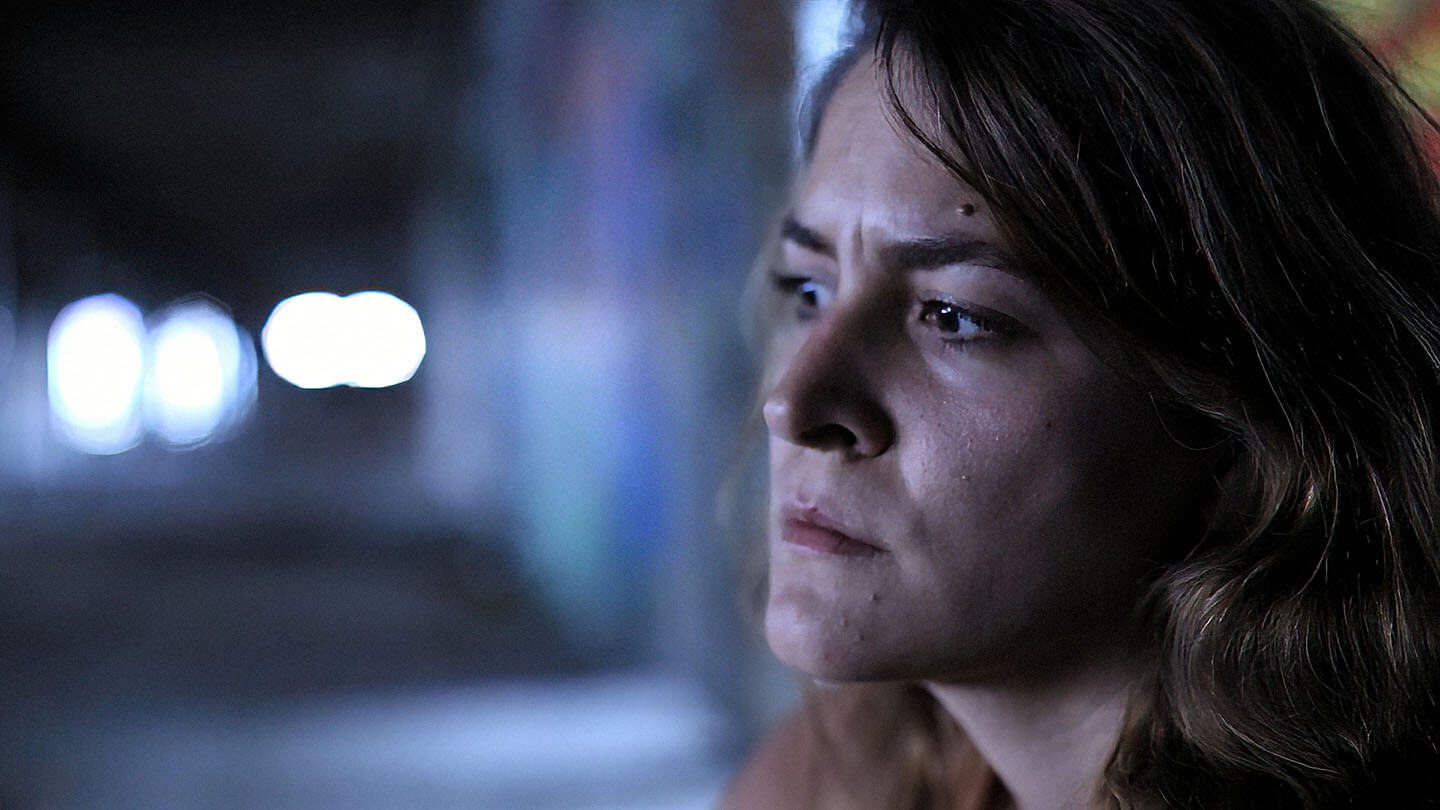Alexander Ratter’s Flight into Darkness, a loose adaptation of Arthur Schnitzler’s book of the same name, retains the sibling relationship but switches the male protagonist with Maria, the fears of losing their grasp of reality intact. Running to twenty-seven minutes, the film comes with a loose narrative chain that culminates into an undone state that mirrors its protagonist.
A contemplative mood with unstuck, floating time greets you with the opening sequence: Maria (Martina Greiner) framed against distant lights of the cityscape in the evening. She is sat somewhere with the cold breeze on her face, alone, restless introspection palpable. Brushing aside questions about her immediate circumstances, the voiceover narration details her thoughts and introduces her counterpart: Maria’s brother. Their bond, fluid like everything else and maintained over Skype, phone, and letters, is nonetheless one of the few fixtures of her life. On her own, Maria worries about her health with an obsessiveness that the film is determined to telegraph to its audience.
Uncomfortably close shots of Maria’s face abound as she breaks the fourth wall, particularly pronounced in one instance where she repeatedly prods her eye while the voiceover narration delves into her unspecified illness in bits and pieces, and another when she speaks into the door buzzer mic on a surprise visit to her brother, Daniel (Wojo van Brouwer). While the former distantly reminds you of Cleo from 5 to 7, the film decisively inculcates an environment of discomfort, and at its height, anguish as near constant companions. The camera adopts a style of regularly becoming entangled within the diegesis, sometimes as Maria’s mirror and sometimes as a character to glance at in confusion. The inclusion of Skype chats allows it to become Daniel’s computer screen, too, when its heavily pixelated, grainy image becomes the full frame.
The relationship between the siblings is the first building block on which the film builds its case for Maria’s autonomy through her subjectivity, tormented or not. Hoping to recover a letter that Maria had once made Daniel sign instating him as the authority on matters of Maria’s life should she be deemed incapable brings a fracture in the equation that had already begun to show cracks to the forefront.
Through it all, a feel for an isolating city emerges, even (or especially) when the focus shifts to Daniel indulging in a hookup. Maria’s recollection of the last meeting with a friend (Peter Bauer) who was institutionalized brings on that same, if worse, sense of loneliness. It is not just the characters, though Bauer gives the memory its haunted quality, but the fleeting urban landscape outside the bus window as well.
The climax is disorienting, then, keenly frightening, and finally, sad. The camera assumes an intradiegetic position one last time, giving materiality to the treachery that has run all along. Maria’s determination to be free (a feeling alien to none) is already betrayed as soon as she is captured by the new, cruel camera against her will. In the end, only a snapped self remains.
Watch Flight into Darkness Short Film Trailer
Flight into Darkness: Declarations of and Assertions Against Insanity
-
Direction
-
Cinematography
-
Screenplay
-
Editing
-
Music
